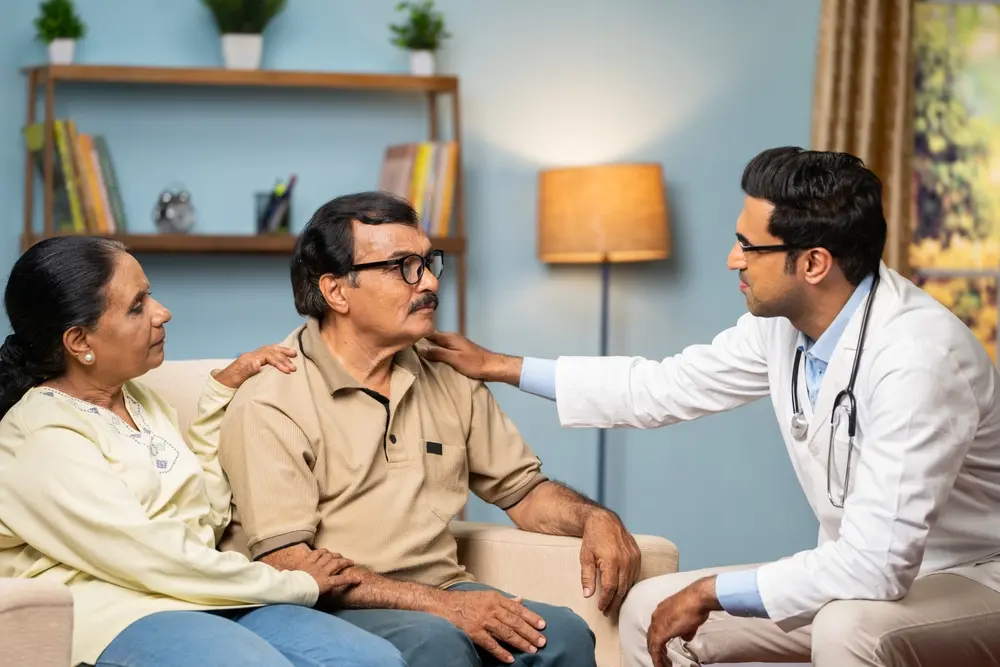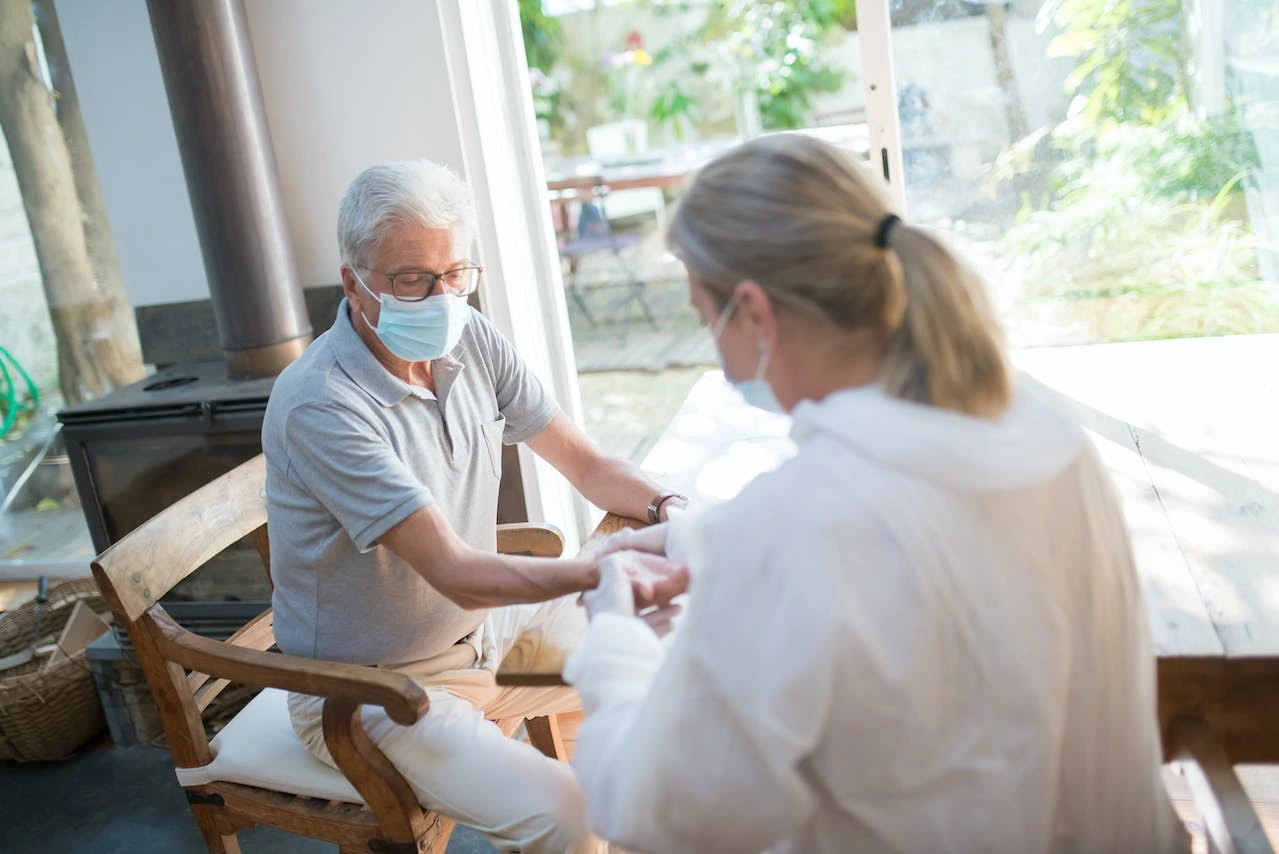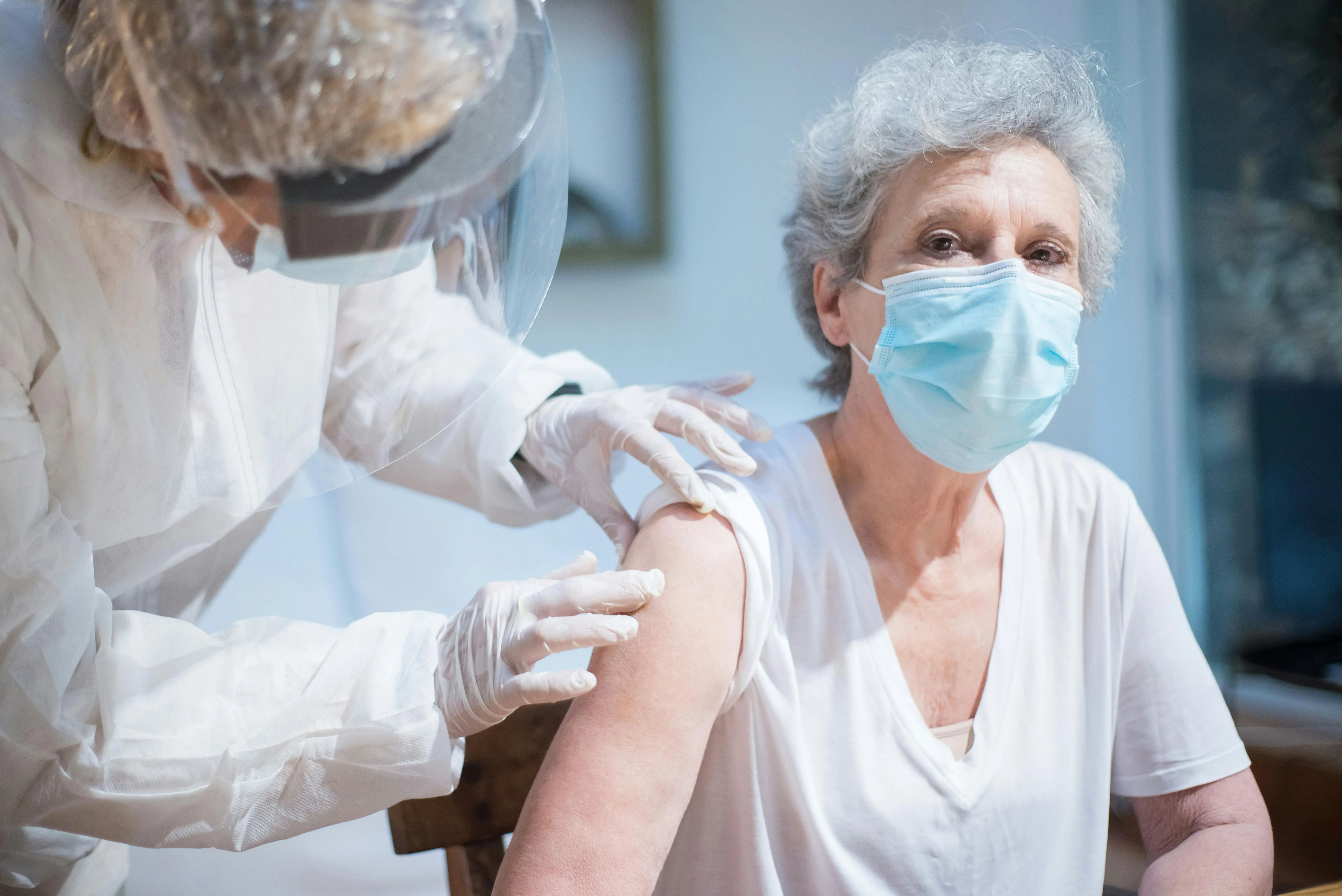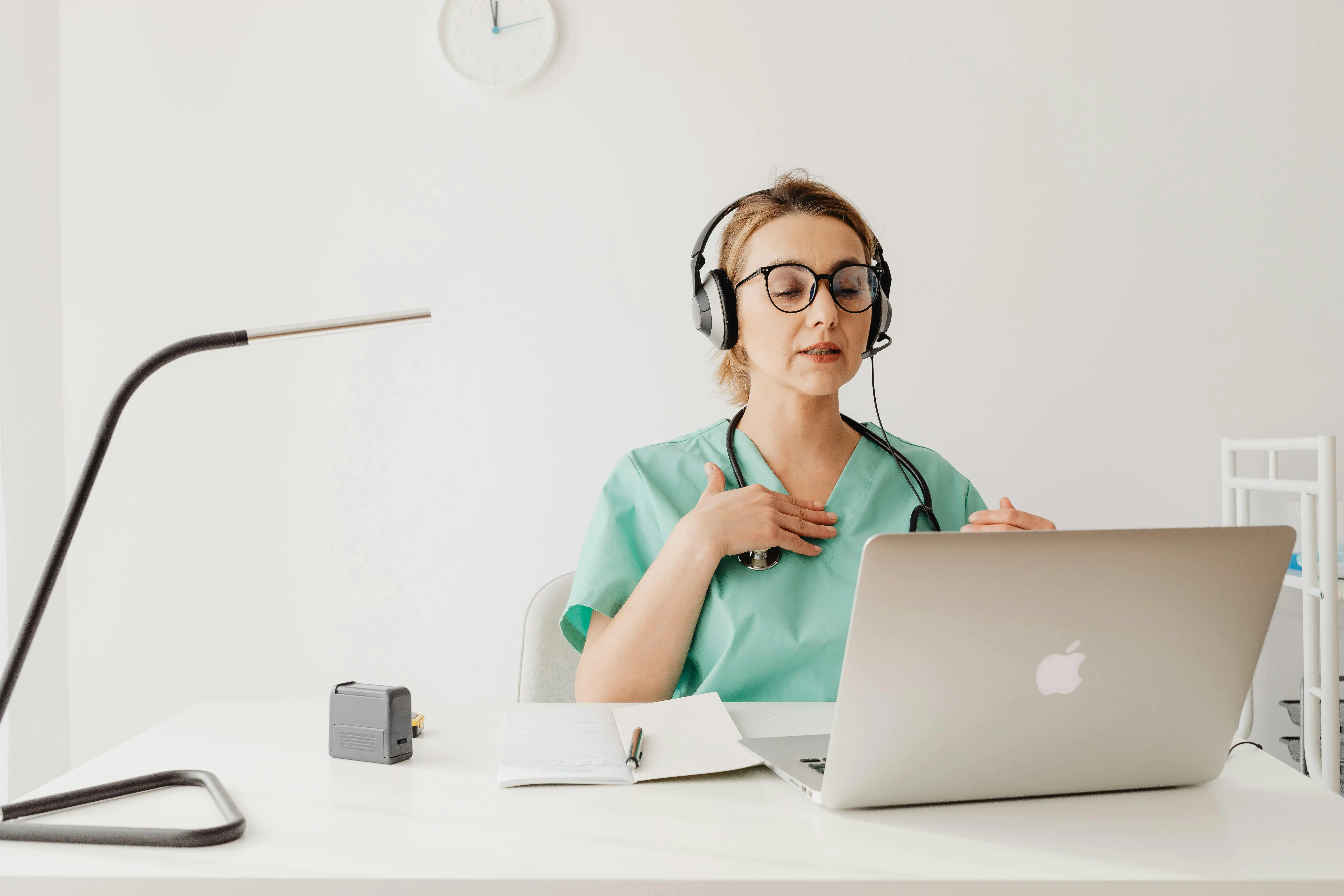Discover how remote healthcare is transforming the lives of elderly individuals living alone in India. Learn about the benefits, challenges, and solutions it offers to promote independent living.
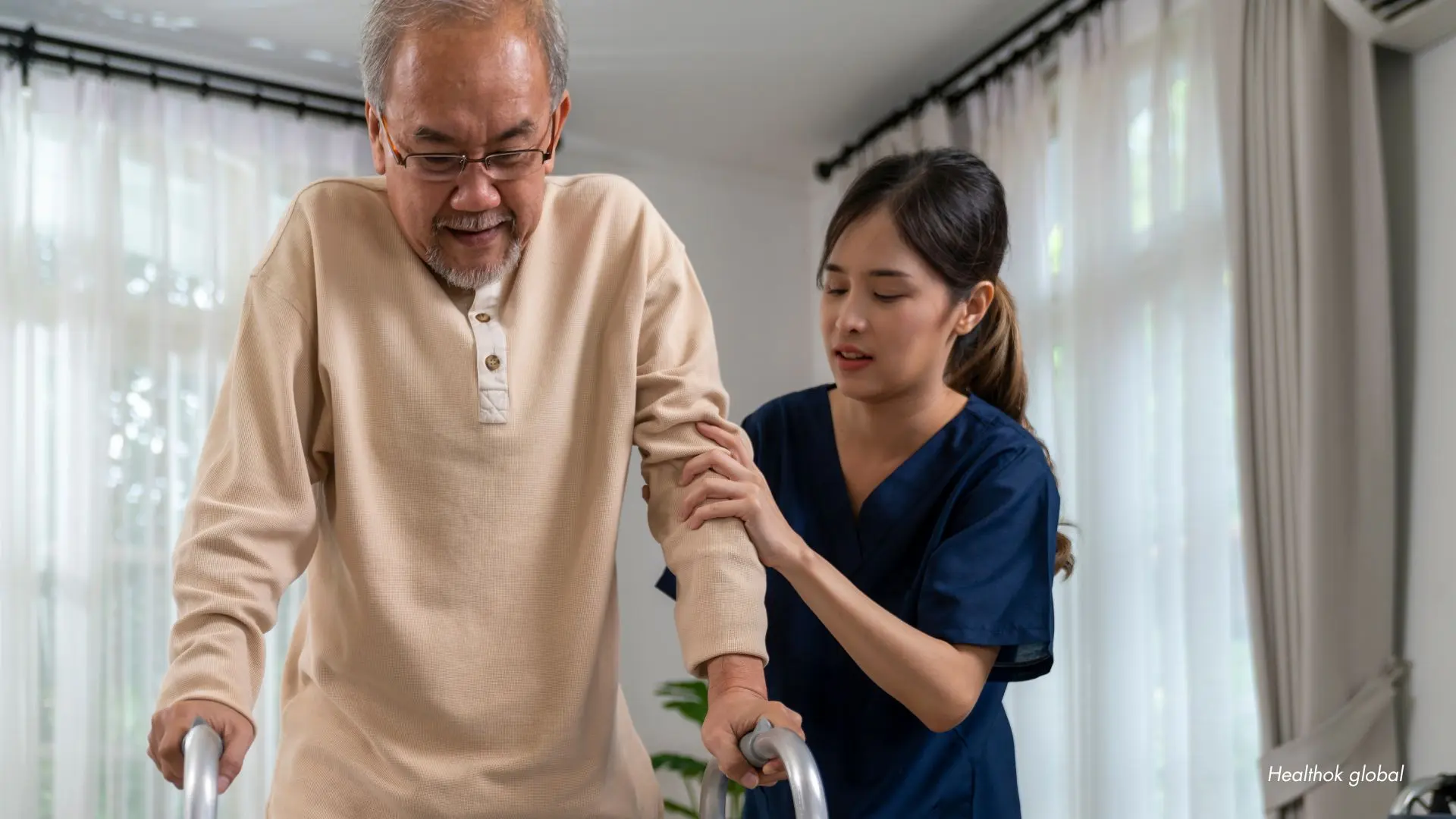
Blog
How Remote Healthcare Supports Elderly Living Alone in India
Caring for elderly family members, especially those living alone, is a growing concern in India. With families spread across cities or countries, ensuring the well-being of aging parents can be challenging. Remote healthcare is emerging as a practical solution, enabling seniors to maintain independence while receiving continuous care.
Remote healthcare involves leveraging technology to monitor and manage the health of elderly individuals from a distance. Services include teleconsultations with doctors, regular health checkups, and monitoring vitals using wearable devices or smart tools. It ensures timely medical interventions and provides consistent support to seniors without requiring constant physical presence.
Wearable devices and home-based tools track vital metrics like blood pressure, sugar levels, and oxygen saturation. This data is shared with healthcare providers, enabling early detection of irregularities and prompt action.
Teleconsultations eliminate the need for seniors to travel to clinics or hospitals, providing timely medical advice from the comfort of their homes.
Remote healthcare systems include instant alert mechanisms to notify family members and arrange emergency medical care during urgent situations.
Reminders and online ordering support ensure seniors take their medications as prescribed, reducing health risks.
Real-time updates and easy communication channels offer families reassurance, knowing their loved ones are under continuous care.
India’s aging population is growing, with many seniors living independently. However, healthcare access remains inconsistent, particularly in remote areas. Remote healthcare bridges this gap, offering tailored services for elderly needs and enhancing their quality of life.
Wearable devices like fitness trackers, smart blood pressure monitors, and glucometers provide real-time health data.
Video and phone consultations connect seniors with general physicians, specialists, and mental health counselors.
Personalized diet plans and routine guidance help seniors maintain their health and stay active.
Scheduled checkups at home or nearby clinics ensure early detection and management of health conditions.
Virtual events and group activities foster connections among seniors, combating loneliness and enhancing mental health.
Take the example of Mr. Sharma, a retired teacher in Pune. With his children abroad, he struggled with managing diabetes and isolation. Enrolling in a remote healthcare program transformed his life—his vitals were continuously monitored, teleconsultations ensured timely medical advice, and medication reminders kept him on track. Today, he leads a healthier, more independent life.
When selecting a remote healthcare service, consider reputation, range of services, ease of use, and cost-effectiveness. A reliable provider should offer comprehensive solutions that cater to seniors’ specific needs.
Remote healthcare is revolutionizing elderly care in India, providing innovative solutions to support independent living. By embracing these technologies, families can ensure their elderly loved ones live with dignity, safety, and happiness.
HealthOK Global offers expert guidance and resources for elderly care. From health monitoring to telemedicine services, we ensure seniors receive the best support. Contact our FREE 24 x 7 Healthcare Helpline at +91-8047190955 for assistance.
Remote healthcare involves leveraging technology to monitor and manage the health of elderly individuals from a distance. Services include teleconsultations with doctors, regular health checkups, and monitoring vitals using wearable devices or smart tools. It ensures timely medical interventions and provides consistent support to seniors without requiring constant physical presence.
India’s aging population is growing, with many seniors living independently. However, healthcare access remains inconsistent, particularly in remote areas. Remote healthcare bridges this gap, offering tailored services for elderly needs and enhancing their quality of life.
When selecting a remote healthcare service, consider reputation, range of services, ease of use, and cost-effectiveness. A reliable provider should offer comprehensive solutions that cater to seniors’ specific needs.
Need Personalized Health Guidance?
Get expert advice tailored to your specific health needs from our qualified healthcare professionals.
